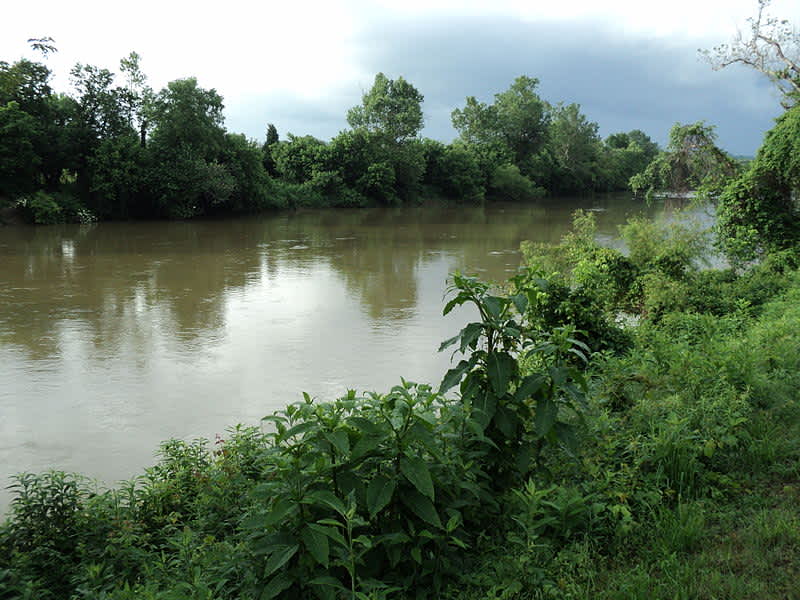North Carolina Coal Ash Spill Closes Fishing in Dan River
OutdoorHub Reporters 02.26.14

Officials with the North Carolina Department of Environment and Natural Resources (DENR) are now screening fish from the Dan River for sickness after a large coal ash spill on February 2. Environmentalists are calling the spill, which occurred at a former Duke Energy power plant in Eden, one of the largest of its kind in history. CNN reported that Duke Energy is still calculating exactly how much coal ash and waste water leaked from the retired power plant into the Dan River, but the most recent estimate puts it as high as 39,000 tons of ash and 27 million gallons of basin water. Wildlife experts say they are unsure what it will mean for the river’s fish.
On Tuesday, DENR environmental screeners Mark Hale and Jeff DeBeradinis went out on the Dan River and caught 21 bottom-feeding suckers and sunfish for testing. The area where the two men were taking their samples is upstream of the spill and supposedly unaffected.
“They all looked like normal fish from the river,” DeBerardinis told The News-Record. “No signs of sick fish.”
However, the specialist added that just because no symptoms appear now does not mean the fish are healthy. DeBerardinis said it may take longer than three weeks for problems to appear. In either case, Hale and DeBerardinis will be spending about a week to gather test specimens for the DENR lab in Raleigh.
The scene is drastically different in the contaminated areas, where signs have been posted near the river. State officials have warned residents to avoid contact with the water or eating fish from the Dan River. Municipal water supplies however, should not be affected. Coal ash has also been reported on the surface of the John H. Kerr reservoir on the North Carolina border with Virginia. The Los Angeles Times reported that the U.S. Fish and Wildlife Service found coal ash as far as 70 miles from the spill site.
Further downstream in the Virginia towns of Danville and South Boston, city officials say the water has been treated to the point where it is safe to drink. Duke Energy says it is working with state agencies to develop a clean up plan, but environmentalists say it’s not enough. Groups such as the Sierra Club are demanding policy changes to prevent further spills in the future.

